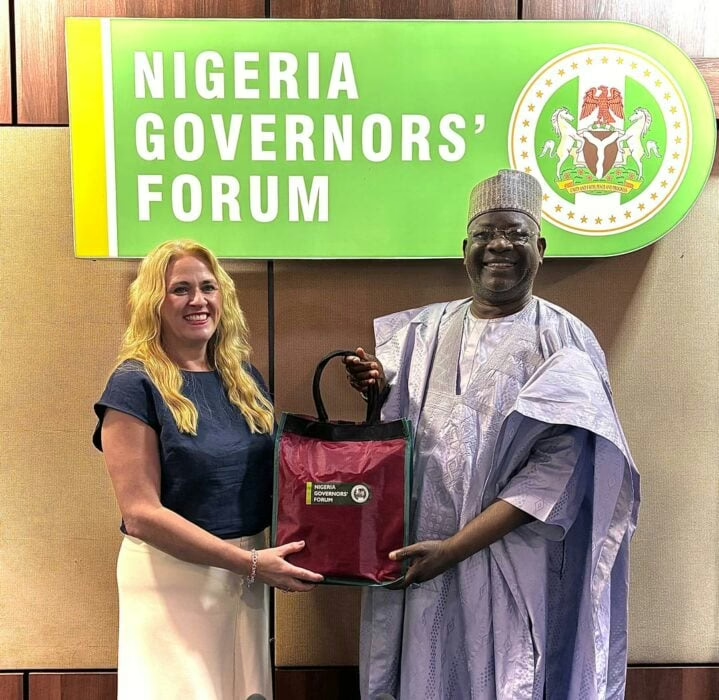Professor Lyndsay Duthie, Pro Vice-Chancellor for Partnerships and Engagement at the University for the Creative Arts (UCA) in the United Kingdom, has called on Nigerian policymakers to prioritize the rapid advancement of the nation’s creative economy, emphasizing that the moment to act is now, not in some distant future.
During a formal visit to the Nigerian Governors’ Forum (NGF) headquarters in Abuja, Prof. Duthie, an experienced television producer with a portfolio including the BBC, ITV, Channel 4, and Sky, highlighted Nigeria’s abundant youthful energy and rich cultural heritage as key assets that, if effectively nurtured, could position the country as a dominant force on the global creative stage.
“The creative economy is an immediate opportunity, not one for tomorrow,” she asserted, referencing the UK’s success where creative industries contributed £124.6 billion to the economy in 2022.
As reported by Yunusa Tanko Abdullahi, Director of Media and Strategic Communications at NGF, Prof. Duthie, who recently delivered the keynote address at the National Council for Arts and Culture’s Creative Economy Summit in Enugu, emphasized that the fusion of culture and creativity is a powerful driver of economic growth.
She pointed out that countries worldwide are leveraging “soft power” through mediums such as art, cinema, and music to shape global perceptions and boost export revenues.
Obi Asika, Director General of the National Council for Arts and Culture (NCAC), praised the collaboration between NGF and UCA as a pioneering effort.
“We are excited to expand this partnership with the Nigeria Governors’ Forum, integrating our collaboration with the University for the Creative Arts into state-level initiatives. This will enhance capacity building, skill acquisition, and open up international opportunities for Nigerians, starting at the subnational level,” Asika remarked.
Dr. Abdulateef Shittu, NGF Director-General, welcomed the UCA delegation, describing the engagement as both timely and impactful. He affirmed the governors’ dedication to developing the creative sector as a vital avenue for economic diversification and youth empowerment.
“Your visit comes at a crucial time as Nigeria elevates the creative economy to a cornerstone of its diversification and youth empowerment strategies,” Shittu noted.
He elaborated that the NGF is collaborating with the NCAC and the Federal Ministry of Art, Culture and the Creative Economy to enhance cultural infrastructure, broaden skills training programs, and embed creative enterprises within state development plans.
Shittu highlighted that Nigeria’s creative talents already serve as a global cultural ambassador, but emphasized that ongoing investment and international partnerships are essential to amplify this influence.
“Through deliberate investment, capacity enhancement, and global cooperation, this potential can be converted into lasting economic prosperity,” he stated.
He assured Prof. Duthie of the NGF’s commitment to fostering knowledge exchange and talent development in partnership with UCA.
“Forming institutional alliances with esteemed global entities like yours will greatly accelerate the expansion of Nigeria’s creative economy,” Shittu affirmed.
He concluded by underscoring that the visit represents more than a ceremonial gesture; it marks a strategic alignment of state ambitions with international expertise.

















